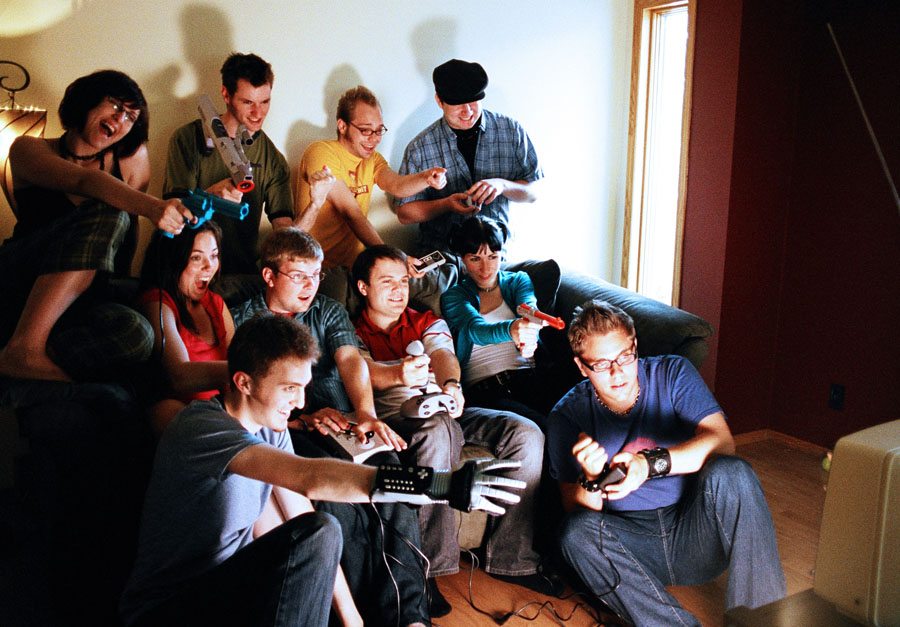 Gaming has probably never been more popular than it is today. Between consoles and mobile devices just about everyone is playing some kind of game on a regular basis. But while this might seem like an all-time high for anti-social behavior, nothing could be further from the truth. As more games incorporate not only the internet, but increasingly social features as well, they’ve become a way for people to connect. Arguably, real-time interaction with other people, whether they’re competing or running the show, has come to be expected by many gamers and has become an essential part of the experience. There’s little question that humans crave (and need) real interaction with other people in their daily lives and this is also true for recreation.
Gaming has probably never been more popular than it is today. Between consoles and mobile devices just about everyone is playing some kind of game on a regular basis. But while this might seem like an all-time high for anti-social behavior, nothing could be further from the truth. As more games incorporate not only the internet, but increasingly social features as well, they’ve become a way for people to connect. Arguably, real-time interaction with other people, whether they’re competing or running the show, has come to be expected by many gamers and has become an essential part of the experience. There’s little question that humans crave (and need) real interaction with other people in their daily lives and this is also true for recreation.
One of the biggest social phenomenons in the gaming world has been the release of a little thing called Pokemon Go. Maybe you’ve heard of it? The mobile app has received more than 15 million downloads, making it the most successful mobile game of all time. Even more interesting, Pokemon Go has revealed a whole new social aspect of gaming that was right there all along: interacting with real people. One of the main appeals of the game, according to many players, is that it has encouraged positive social interactions with people they otherwise wouldn’t have spoken to. Soon the game will become even more social, once the promised trading feature comes out and allows users to interact and share creatures within the game. Meanwhile, Pokemon Go has become a hit in the streaming community as well.
This community has been expanding for years through sites like Twitch, as gamers have learned to share their experiences and interact online. Now, both Facebook and Microsoft are attempting to take advantage of the new streaming craze as well. Facebook has been rolling out its Live feature where users can directly stream and upload just about anything to the site with both users and advertisers quick to jump on the trend. Meanwhile, Microsoft has acquired its own interactive game streaming service called Beam in an attempt to compete with Twitch, which is owned by Amazon.
Live streaming is nothing new when it comes to video games, and online gaming sites have been doing this forever in a variety of ways. One way the companies utilize live video to enhance the experience is through the integration of live callers into bingo sites where real people will call the numbers and interact with players much in the same way one would at a traditional bingo hall. The end result is a significantly more dynamic experience for the players that helps to remove the impersonal nature of an otherwise humdrum online game.
This ability to play and interact with other people makes a big difference in games, as having a real face on the other side of the table greatly affects how you respond to the game. This incorporation of real people into the game play itself is actually rather ingenious. We honestly wouldn’t be surprised to see this applied to more ambitious platforms, such as through live referees in a sports game like FIFA 16 (imagine the offsides calls) or interactive shop owners controlled by real people in RPGs such as World of WarCraft where you could sell your own crafted items.
As the population taking part in video games continues to expand we fully predict that the ways in which players will be able to share their experiences will expand as well. The level of interaction between both players and with the games themselves will only continue to deepen as both technology and social media become an ever larger part of our daily lives.


